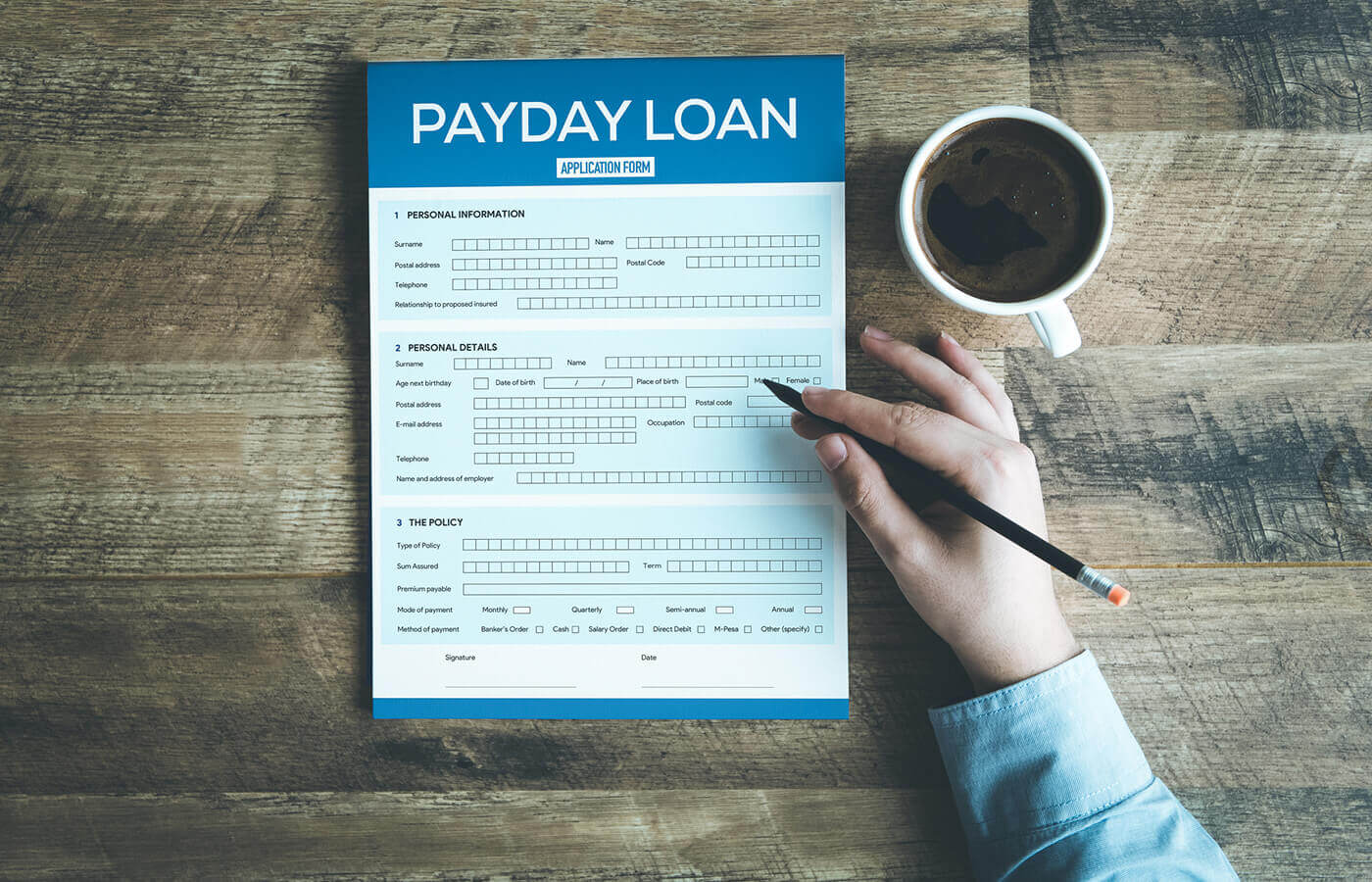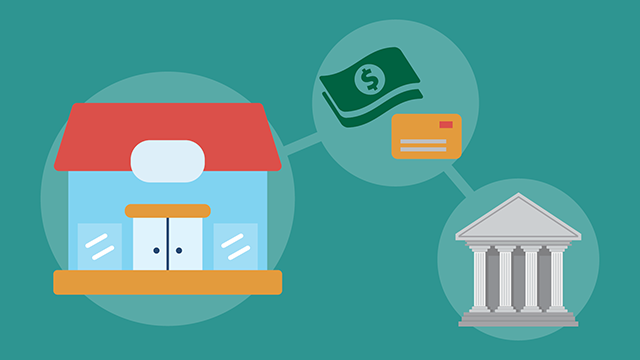Learn how to balance your finances with Fast Cash and Cash Loan options for enhanced flexibility
A Comprehensive Guide to Home Loans: Solutions and Options Explained
Charting the globe of home financings can be complicated. Various options exist, each with special attributes and ramifications for possible house owners. Comprehending the differences between conventional and government-backed financings is necessary. In addition, the application procedure entails careful paperwork and pre-approval steps that numerous neglect. As customers begin on their home-buying trip, recognizing how to manage these obligations effectively could indicate the distinction in between economic stability and challenge. What strategies can empower them on this path?
Comprehending Home Loans: Types and Terms
Recognizing the numerous kinds of mortgage and their connected terminology is necessary for prospective property owners, as it outfits them with the expertise required to make educated economic choices. Home loans can be generally categorized right into fixed-rate and adjustable-rate mortgages. Fixed-rate mortgages maintain a consistent passion price over the life of the car loan, giving security in month-to-month repayments. Fast Cash. Alternatively, variable-rate mortgages include rate of interest that might change after an initial set period, possibly leading to reduced preliminary payments yet boosted future costs
Extra terms is very important for quality. Principal describes the finance amount obtained, while rate of interest is the price of borrowing that quantity. The regard to the funding suggests its period, commonly ranging from 15 to 30 years. Recognizing these essential concepts makes it possible for possible buyers to browse the complex landscape of home funding, ensuring they pick the right financing choice that aligns with their monetary scenario and long-lasting objectives.
Standard Financings vs. Government-Backed Loans
A substantial difference in home financing exists in between conventional fundings and government-backed lendings, each accommodating various consumer needs and circumstances. Standard fundings are not guaranteed or assured by the federal government and usually require higher credit history ratings and down settlements. They are frequently interesting borrowers with stable financial backgrounds, as they may provide competitive rate of interest and terms.
On the other hand, government-backed lendings, such as FHA, VA, and USDA lendings, are made to aid details teams of debtors, consisting of novice property buyers and veterans. Installment Loans. These financings usually include reduced deposit needs and even more adaptable credit requirements, making them available to a broader array of people
Eventually, the selection in between government-backed and standard financings depends upon the consumer's economic scenario, long-term goals, and qualification, making it essential to very carefully assess both options before choosing.

The Duty of Interest Rates in Home Funding
Rates of interest play a crucial function in home financing, influencing customers' decisions in between set and variable price financings. The selection between these options can significantly impact month-to-month settlements, affecting total price. Comprehending just how rates of interest function is vital for any individual navigating via the home lending procedure.
Taken Care Of vs. Variable Prices
Property buyers encounter an essential choice when selecting between dealt with and variable rates, as this selection greatly influences the cost of funding with time. Fixed-rate home mortgages provide security, locking in an interest rate for the life of the loan, which can be helpful in a rising rate of interest setting. This predictability enables homeowners to budget plan a lot more properly. Conversely, variable-rate home mortgages, or variable-rate mortgages (ARMs), typically begin with lower preliminary prices that can vary based on market problems. While this may lead to reduced initial repayments, borrowers deal with the danger of raised rates in the future. Eventually, the option in between fixed and variable rates depends upon private economic scenarios, risk resistance, and expectations regarding future rate of interest fads.
Influence On Monthly Settlements
When reviewing home financing choices, the influence of rates of interest on month-to-month payments is an essential element to consider. Interest rates straight affect the general expense of loaning, affecting how a lot a customer will certainly pay monthly. A lower rates of interest cause smaller monthly repayments, making homeownership extra inexpensive. On the other hand, higher prices can substantially increase month-to-month commitments, possibly straining a property owner's budget plan. In addition, the car loan term plays a vital role; longer terms may spread repayments out but can result in paying even more rate of interest in time. Recognizing exactly how passion prices connect with funding amounts and terms is important for debtors to make informed economic choices and choose a home mortgage that aligns with their long-term financial objectives.
Home Mortgage Brokers vs. Direct Lenders: Which Is Right for You?
When thinking about a home loan, potential consumers must recognize the unique duties and obligations of home loan brokers and direct loan providers. Each alternative presents its very own advantages and downsides, which can significantly influence the overall expense of financing. An enlightened selection requires cautious analysis of these variables to figure out the finest suitable for individual needs.
Obligations and duties Defined
Steering the intricacies of home funding requires a clear understanding of the duties and duties of home mortgage brokers and direct lenders. Home mortgage brokers act as middlemans, linking debtors with loan providers. They analyze a borrower's monetary scenario, curate lending alternatives, and overview customers with the application process, often leveraging multiple lending institution relationships to secure favorable terms. Alternatively, straight loan providers, such as banks and lending institution, supply financings directly to debtors. They take care of the whole finance procedure, from application to financing, with a focus on their very own items. Each option presents unique avenues for obtaining funding, making it crucial for debtors to assess their demands and choices when determining article source between involving a home mortgage broker or dealing with a direct lender.
Disadvantages and pros Contrast
Choosing in between a home loan broker and a straight lender can considerably affect the home financing experience, as each choice uses special advantages and disadvantages. Mortgage brokers act as intermediaries, offering accessibility to multiple lenders and possibly far better prices, while simplifying the funding here are the findings procedure. However, they might charge costs and depend on commission frameworks that might influence their referrals. On the various other hand, straight loan providers enhance the procedure by supplying internal car loans, which can cause faster authorizations and fewer complications. Alternatively, they might have a restricted option of items and less adaptability pertaining to rates. Eventually, the decision depends upon individual choices, economic scenarios, and the desired level of assistance throughout the home loan journey.
Cost Implications Evaluated
While reviewing the price effects of mortgage brokers versus straight loan providers, prospective homeowners should take into consideration various aspects that can significantly influence their general expenses. Mortgage brokers normally charge fees for their services, which can differ considerably, influencing the overall loan cost. However, they often have accessibility to a larger series of funding products and competitive prices, potentially saving debtors money in the future. On the other hand, straight lenders might provide a much more uncomplicated procedure with possibly lower in advance expenses, yet their financing choices may be limited. It is essential for house owners to contrast rates of interest, costs, and terms from both lenders and brokers, ensuring they make an enlightened decision that straightens with their monetary goals and requirements.
The Home Mortgage Application Refine: What to Expect

The home mortgage application procedure can commonly feel intimidating for several applicants. It typically starts with collecting required documents, consisting of proof of income, credit report, and individual recognition. Lenders utilize this details to analyze the candidate's economic stability and establish funding eligibility.
Next, candidates submit an official application, which might include submitting on-line kinds or supplying information personally. Throughout this stage, lenders review numerous factors, such as debt-to-income proportion and credit rating, to choose funding terms.
Once pre-approved, the loan provider will certainly carry out a detailed appraisal of the home to identify its value lines up with the finance amount. This phase may additionally consist of added history checks.

After final authorizations and conditions are fulfilled, the finance is refined, bring about the closing stage. Understanding each action empowers applicants, making the journey smoother and more workable as they move toward homeownership.
Tips for Managing Your Home Mortgage Properly
Effectively maneuvering the home mortgage application process is simply the beginning of an accountable monetary journey. Taking next page care of a mortgage requires focus to a number of key methods. Consumers must develop a clear budget that fits month-to-month home mortgage settlements, building tax obligations, and insurance coverage. Consistently evaluating this spending plan aids prevent overspending and assurances prompt settlements.
Furthermore, making additional payments when possible can substantially lower the car loan principal and total interest paid gradually. Consumers ought to also keep open lines of interaction with their loan provider, particularly in times of monetary problem. This can cause possible options such as finance modifications or refinancing alternatives.
Lastly, it is a good idea to check credit report on a regular basis. An excellent credit history can supply possibilities for far better finance terms in the future. Payday Loans. By following these tips, property owners can browse their finance duties properly, ensuring long-lasting financial health and stability
Frequently Asked Concerns
What Are Closing Prices and How Are They Calculated?
Closing expenses encompass costs associated with completing a mortgage, including assessment, title insurance coverage, and financing origination charges. These expenses usually range from 2% to 5% of the car loan amount, varying based upon place and lender.
Can I Get a Mortgage With Bad Credit Rating?
Yes, individuals with poor credit report can qualify for a home mortgage, though choices may be restricted. Lenders usually call for greater down settlements or rates of interest, and checking out government-backed car loans might improve possibilities of authorization.
What Is Home mortgage Insurance and When Is It Required?
Mortgage insurance coverage safeguards loan providers against default and is usually needed when a debtor makes a deposit of less than 20%. It assures that lenders recoup losses if the borrower falls short to settle the funding.
Just How Does Refinancing Work and When Should I Consider It?
Refinancing involves replacing an existing mortgage with a new one, generally to protect a lower rate of interest or change lending terms. Home owners ought to think about refinancing when rates of interest drop significantly or their financial circumstance enhances.
What Occurs if I Miss a Home Mortgage Settlement?
If a home mortgage repayment is missed, the loan provider usually assesses late charges, reports the delinquency to debt bureaus, and may initiate repossession proceedings if repayments continue to be overlooked, eventually threatening the homeowner's property.
Fixed-rate home mortgages preserve a consistent interest rate over the life of the loan, supplying stability in month-to-month payments. A substantial distinction in home financing exists between traditional financings and government-backed fundings, each catering to various customer demands and circumstances. In contrast, government-backed car loans, such as FHA, VA, and USDA finances, are developed to aid particular teams of consumers, consisting of novice property buyers and veterans. Interest rates play an essential role in home financing, influencing consumers' decisions between variable and set price financings. Fixed-rate home loans use stability, securing in an interest price for the life of the financing, which can be helpful in a rising interest rate atmosphere.